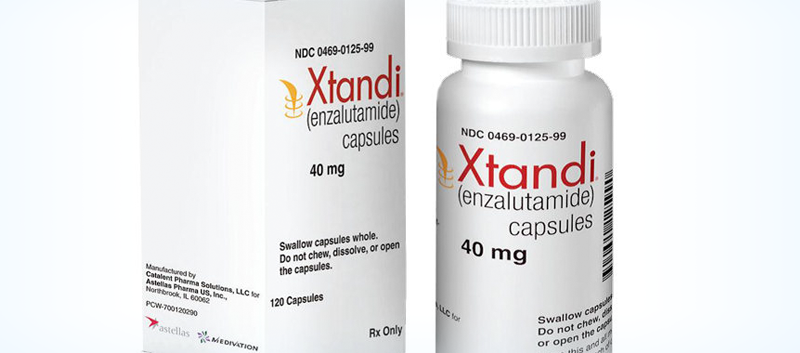Xtandi takes fight to prostate cancer rivals with survival data

Pfizer and Astellas have new survival data for their prostate cancer drug Xtandi that could help it fend off growing competition in the market.
The results of the phase 3 PROSPER trial show that Xtandi (enzalutamide) extended overall survival when added to standard androgen deprivation therapy (ADT) in men with early-stage prostate cancer that hasn't spread to other areas of the body.
Xtandi has been approved for this indication – known as non-metastatic, castration-resistant prostate cancer (nmCRPC) indication – since the middle of 2018, based on earlier results showing it could reduce the risk of disease spreading or death by 71% compared with ADT alone.
The new data reinforce the benefit of Xtandi in this hard-to-treat patient population as it jostles for market share with competing prostate cancer therapies from Johnson & Johnson and Bayer.
It is estimated that between 10% and 20% of prostate cancer patients have tumours that are castration-resistant, and around 16% of them show no evidence that the cancer has spread at the time of the castration-resistant diagnosis.
Bayer’s late entrant into the marketplace – Nubeqa (darolutamide) – was actually the first in the class to show an improvement in survival in nmCRPC when added to ADT in the ARAMIS study last month. Now, Pfizer and Astellas have closed the gap.
Meanwhile, J&J’s Erleada (apalutamide) only managed to show a trend toward an improvement in the SPARTAN trial reported last September, although follow-up is still continuing.
Xtandi is the market leader among new hormonal therapies for prostate cancer, with Astellas recording $2.7 billion in sales between March and end-December 2019 – the first nine months of its current fiscal year, which was an 18% increase.
Meanwhile, Pfizer said this month that its alliance revenues from Xtandi rose 20% last year, and when combined with royalty income on ex-US sales totalled nearly $1.2 billion. The company reckons the drug has a US market share of around 35%.
In December, Pfizer and Astellas also picked up an FDA approval for another new indication for Xtandi – metastatic castration-sensitive prostate cancer (mCSPC) – that could potentially unlock another 40,000 eligible patients for the drug.
It made Xtandi the only oral treatment approved by the FDA in three distinct types of prostate cancer, according to Pfizer, although Erleada pipped it to the post in mCSPC after getting a green light from the US regulator in that indication last September.
One challenge facing the new therapies is the arrival of generics of J&J’s older prostate cancer therapy Zytiga (abiraterone acetate) on the US market towards the end of 2018. However, in its fourth-quarter results statement Pfizer said these didn’t seem to have an impact on Xtandi’s growth last year.












